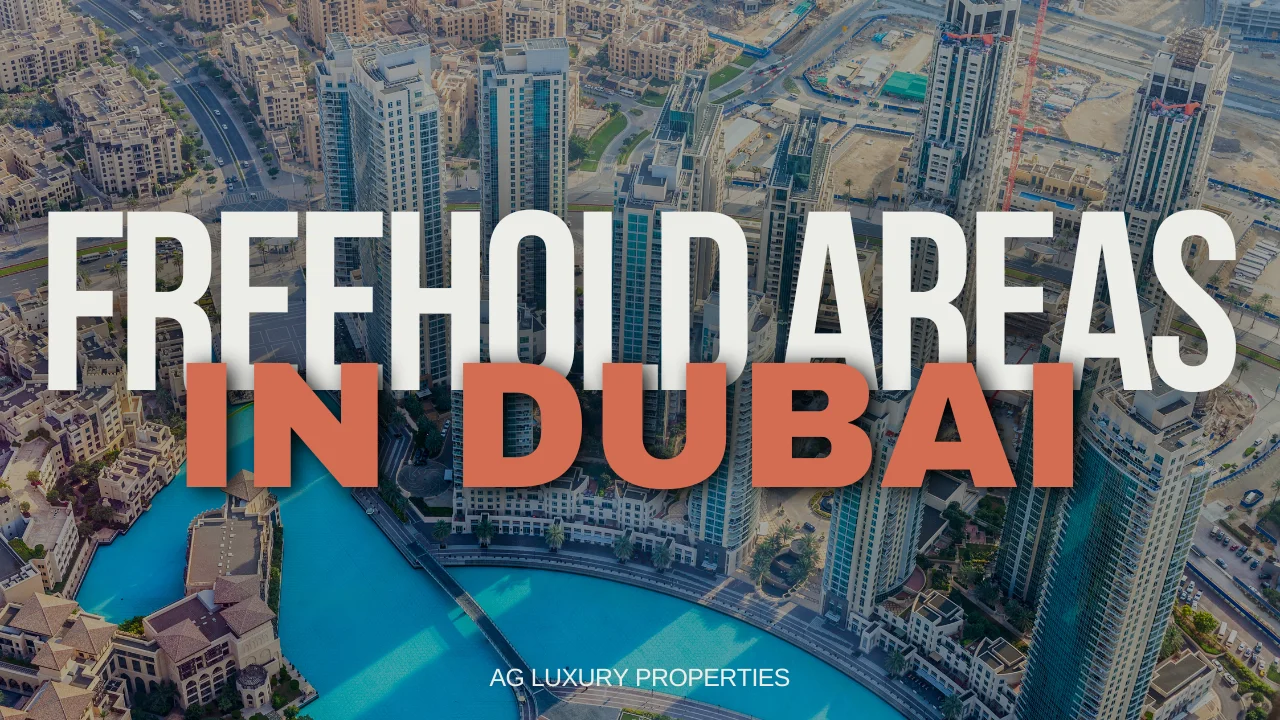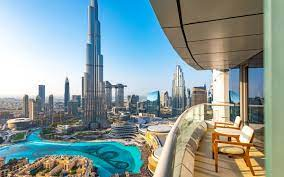Now Reading: Dubai Freehold: 6 Property Zones With Favorable Tax Treatment in 2025
-
01
Dubai Freehold: 6 Property Zones With Favorable Tax Treatment in 2025
Dubai Freehold: 6 Property Zones With Favorable Tax Treatment in 2025

Table of Contents
Dubai Freehold: Dubai’s real estate market continues to shine as a global investment hub, drawing U.S. investors with its tax-free environment and high rental yields. Since the introduction of freehold property ownership for foreigners in 2002 under Law No. 7 of 2006, Dubai has transformed into a haven for international buyers seeking long-term value and stability.
Freehold zones, where non-UAE nationals can own property outright, offer unparalleled benefits, including no income tax on rental earnings, no capital gains tax, and no annual property taxes. Coupled with the UAE dirham’s peg to the U.S. dollar, these zones provide predictable returns without currency risk.
This article explores six prime freehold property zones in Dubai for 2025, highlighting their tax advantages and investment potential for U.S. investors looking to diversify their portfolios.
Why Invest in Dubai’s Freehold Zones?
Dubai’s freehold zones allow foreign investors to own both the property and the land it sits on indefinitely, granting full rights to sell, lease, or pass it on to heirs. The absence of taxes on rental income, capital gains, and property ownership sets Dubai apart from U.S. markets, where investors face capital gains taxes up to 20% and property taxes averaging 1-2% annually.
For example, a $500,000 property in Dubai yielding 7% annually generates $35,000 in tax-free rental income, compared to a similar U.S. property where taxes could reduce net returns by 15-20%. The Golden Visa program, offering 10-year residency for investments of AED 2 million ($545,000), further sweetens the deal, providing U.S. investors with long-term residency benefits.
Below, we highlight six freehold zones with favorable tax treatment and strong investment potential in 2025.
1. Downtown Dubai: The Heart of Luxury
Downtown Dubai, home to the iconic Burj Khalifa and Dubai Mall, is a premier freehold zone offering luxury apartments and penthouses. Its central location drives high rental demand, with yields averaging 6-8%. U.S. investors benefit from tax-free rental income and capital gains, with studios starting at AED 1.38 million ($375,000) and 2-bedroom apartments around AED 3.6 million ($980,000). Off-plan projects like Emaar’s Burj Al Arab Views offer lower entry prices and flexible payment plans, maximizing capital appreciation. The area’s proximity to business and tourism hubs ensures consistent demand.
2. Dubai Marina: Waterfront Living
Dubai Marina, a vibrant waterfront community, is a top freehold zone known for its luxury apartments and vibrant lifestyle. With rental yields of 7-9%, it’s ideal for short-term rentals through platforms like Airbnb, especially given its proximity to JBR Beach and Marina Walk. The absence of income and capital gains taxes allows U.S. investors to retain full profits from rentals and resales. Prices start at AED 2.93 million ($797,000) for studios and AED 3.5 million ($952,000) for 2-bedroom units. Projects like LIV Marina offer modern residences with high ROI potential.
3. Palm Jumeirah: Exclusive Island Living
Palm Jumeirah, a man-made marvel, offers freehold villas and apartments with sea views, attracting high-net-worth U.S. investors. Rental yields average 5-7%, with tax-free returns enhancing profitability. Properties range from studios at AED 3.6 million ($980,000) to villas exceeding AED 20 million ($5.4 million). Its exclusivity, with amenities like Atlantis The Palm, ensures strong demand. The Golden Visa eligibility for investments over AED 2 million adds residency benefits. Investors should note that high entry prices require careful financial planning.
4. Jumeirah Village Circle (JVC): Affordable High Returns
Jumeirah Village Circle is a family-friendly freehold zone offering sy offering affordable apartments with yields up to 8%. Studios start at AED 400,000 ($109,000), and 1-bedroom units average AED 768,000 ($209,000). The tax-free environment ensures U.S. investors keep all rental income and resale profits, making JVC a cost-effective entry point. Its growing expat community and new off-plan projects drive demand, though oversupply risks in the studio market warrant caution.
5. Business Bay: Commercial and Residential Hub
Business Bay, adjacent to Downtown Dubai, is a mixed-use freehold zone with high-rise apartments and commercial spaces. Rental yields of 7-10% and no taxes on income or gains make it attractive for U.S. investors. Studios start at AED 1.02 million ($277,000), with 2-bedroom units at AED 2.6 million ($707,000). Its proximity to Sheikh Zayed Road and business hubs ensures high occupancy. Off-plan projects offer capital appreciation potential, but investors should verify developer reliability.
6. Dubai Hills Estate: Family-Friendly Luxury
Dubai Hills Estate, a master-planned community, offers freehold villas, townhouses, and apartments with yields of 6-7%. Its green spaces, top-tier schools, and golf courses appeal to families, ensuring rental demand. Prices start at AED 1.5 million ($408,000) for apartments, with villas averaging AED 4.2 million ($1.14 million). Tax exemptions on rental income and capital gains, combined with Golden Visa eligibility, make it a strong choice.
Tax Advantages and Compliance for U.S. Investors
Dubai’s tax-free environment is a major draw. Unlike the U.S., where property taxes and capital gains taxes reduce returns, Dubai imposes no such taxes, allowing investors to retain 100% of profits. However, a 4% Dubai Land Department transfer fee applies at purchase. U.S. investors must comply with IRS requirements, including FATCA (Form 8938) for foreign assets exceeding $50,000 (single filers) or $100,000 (joint filers) at year-end, and FBAR for foreign accounts over $10,000. Consulting a tax professional is crucial to navigate these obligations and avoid penalties.
Strategic Benefits of Free Zones
While freehold zones are distinct from free zones, U.S. investors can enhance tax efficiency by owning properties through a free zone company, such as in the Dubai Multi Commodities Centre (DMCC). These entities offer 0% corporate tax on qualifying income, provided mainland revenue is below 5% or AED 5 million. This structure provides asset protection and tax optimization, though setup costs and compliance requirements should be evaluated.
Risks and Considerations
Dubai’s real estate market saw a 19.9% price increase in Q3 2024, with 36,448 transactions, signaling strong demand but potential oversupply risks in areas like JVC. Off-plan projects, common in Downtown Dubai and Business Bay, carry construction delay risks. Rising global interest rates may impact financing, as UAE mortgages are less accessible for foreigners. U.S. investors should also monitor global economic factors, like oil prices, which could affect market sentiment. Partnering with RERA-registered agents and conducting due diligence on developers mitigates these risks.
Why Invest in Dubai’s Freehold Zones in 2025?
Dubai’s real estate market is booming, with transaction values reaching AED 306.3 billion in the first three quarters of 2024. The city’s Economic Agenda D33 aims to double its economy by 2033, ensuring long-term growth. Freehold zones like Downtown Dubai, Dubai Marina, and Palm Jumeirah offer luxury and high yields, while JVC and Dubai Hills Estate provide affordable options. The tax-free environment, Golden Visa benefits, and robust infrastructure make these zones ideal for U.S. investors seeking high ROI and stability. By choosing reputable developers like Emaar or Nakheel, investors can secure profitable assets in one of the world’s most dynamic markets.
In conclusion, Dubai’s freehold zones offer U.S. investors a rare combination of tax exemptions, high rental yields (5-10%), and residency benefits. Whether targeting luxury properties in Downtown Dubai or affordable units in JVC, these six zones provide diverse opportunities to maximize returns in a thriving market. Dubai Freehold
read more: Dubai South Projects: 5 Tax-Efficient Communities Near Expo Legacy Zones



















